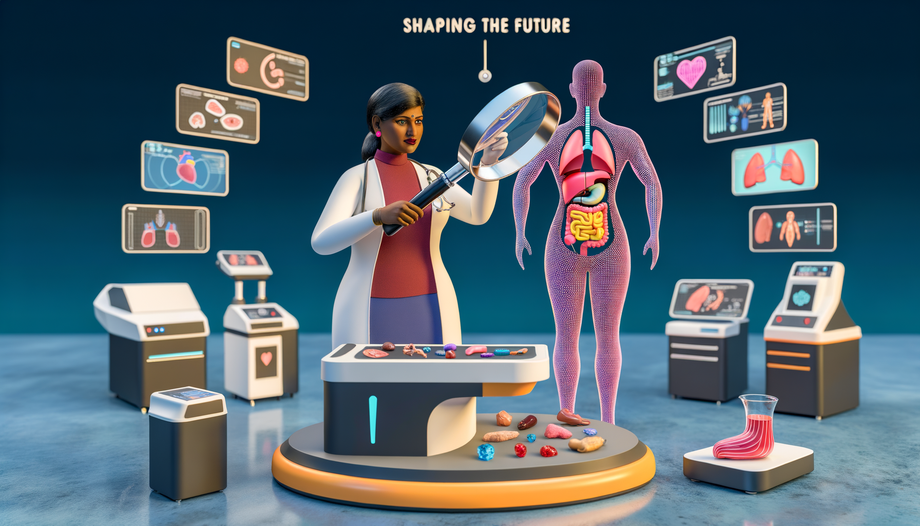In recent years, the healthcare industry has made significant strides toward patient-centered care, reshaping how we approach cancer detection and prevention. This focus heralds a promising shift towards personalized cancer screening methods, fostering an era where treatments align closely with individual patient profiles and histories. This transformation not only has profound implications for improving patient outcomes but also enhances the overall healthcare experience.
Understanding Patient-Centered Care
Patient-centered care is a holistic approach that honors patients' preferences, needs, and values in decision-making processes. The ideology emphasizes empowering patients with more information, supporting shared decision-making and ensuring that their voice remains a pivotal part of healthcare strategies.
In cancer care, this translates into devising screening and prevention strategies tailored specifically to an individual's risk factors, lifestyle, genetic predispositions, and personal preferences.
The Importance of Personalized Cancer Screening
**1. ** Improved Precision and Accuracy: Personalized cancer screening identifies potential anomalies faster than traditional one-size-fits-all models. By considering factors like genetics, family history, and lifestyle, it increases the likelihood of detecting cancer early when it is most treatable.
2. Decreased Unnecessary Interventions: By tailoring screening to fit individual profiles, there is a reduced risk of false positives and unnecessary interventions, leading to less patient anxiety, reduced economic burdens, and smarter resource allocation.
3. Empowered Patients: With more personalized care, patients become active participants in their health journey, equipped with better understanding and control over their choices.
Personalized Cancer Prevention Strategies
Beyond merely detecting cancer in its early stages, personalized prevention looks to mitigate risk before it manifests. This proactive approach incorporates:
-
Genomic Testing: allows healthcare professionals to understand a person’s genetic makeup, identifying predispositions to certain cancer types and tailoring preventive measures accordingly.
-
Lifestyle Interventions: Integrating unique lifestyle insights into prevention strategies can significantly boost effectiveness. An individual's diet, exercise routine, environmental exposures, and habits like smoking are pivotal components.
-
Chemoprevention: These are specific drugs or treatments aimed at reducing cancer risk in high-risk individuals, developed following personalized risk assessments.
Technological Advancements Driving Personalized Care
Technology plays a pivotal role in integrating patient-centered approaches into cancer care. Innovations like AI and machine learning allow healthcare professionals to analyze large datasets, identify patterns, and predict outcomes with unprecedented precision.
1. Artificial Intelligence (AI): Leveraging AI in health care helps in creating robust predictive models that can guide personalized screening timelines, types, and frequencies.
2. Wearable Technology: Devices like fit-bits track vital stats such as heart rate, activity levels, and sleep patterns, providing a comprehensive view of an individual's health metrics.
3. Telemedicine: Makes access to specialized health care teams feasible, offering remote consultations that feel more personal and patient-focused, accelerating the personalized approach.
The Role of Collaboration
Achieving comprehensive personalized care necessitates collaboration across the healthcare spectrum—from policymakers and technology companies to healthcare providers and insurers. Here’s why collaboration is paramount:
-
Data Sharing: Healthcare bodies can share invaluable data sets while ensuring patient privacy to create robust predictive algorithms.
-
Integrated Care Models: Breaking silos to work collectively can lead to more seamless patient experiences and innovative care solutions.
Overcoming Challenges and Moving Forward
Despite immense promise, challenges remain in actualizing patient-centered care in cancer prevention and screening.
-
Cost and Access: Personalized interventions can be costly, and equitable access remains a challenge. Scaling efforts to make them accessible to broader populations is essential.
-
Privacy Concerns: Protecting patient data while utilizing it to enhance personalized care is a delicate balance that needs addressing.
Concluding Thoughts—Personalization: The Future of Cancer Care
Embracing personalized cancer screening and prevention as a mainstay rather than a niche offers an opportunity to improve patient outcomes significantly. As technology advances and healthcare evolves, the potential to enhance cancer care through personalization becomes increasingly tangible. It requires a steadfast commitment from all healthcare stakeholders, recognition of patient autonomy, and a focus on dynamic strategies tailored to individual needs.
The path to truly personalized, patient-centered cancer care is a journey worth embarking upon, promising not just better health outcomes but a deeper, richer healthcare experience for every individual.
About the Author: As a content writer specializing in healthcare innovations, I am passionate about exploring transformative trends impacting patient outcomes. With experience in patient-centered care research, I aim to propel understanding and engagement in healthcare advancements
Explore Comprehensive Market Analysis of Cancer Early Detection Market
SOURCE -- @360iResearch

